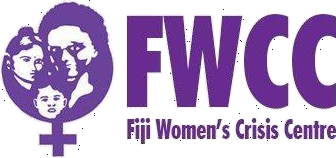Discussions on the first day of the sixth Pacific regional meeting on the elimination of violence against women and girls in Nadi today focussed on the availability of shelters and ethical standards that must be adhered to.
One of the major issues surrounding women’s refuges in the Pacific is that of confidentiality, according to Fiji Women’s Crisis Centre deputy coordinator Edwina Kotoisuva. She said institutions which deal with women survivors of violence need to put in place codes of ethics that comply with international standards of care that are rights based.
While it may be difficult to keep the actual location of a safe-house secret, Ms Kotoisuva said, those who work there must be trained never to reveal any sort of information that could put at risk the lives of those in the refuge.
“Women are most at risk of further violence when they decide to leave the violent situation,” says Ms Kotoisuva. “If we don’t have a clear understanding of the situation of women and violence against women, we will end up pushing women back into a situation of risk.”
But while a shelter is essential in the short to medium term to help women recover, women must eventually be able to live independently. Ms Kotoisuva said organisations running refuges should not view themselves as “saving” abused women; instead the process should be focussed on empowering women to rebuild their lives.
“We shouldn’t create dependence. It should be about self-determination and empowerment.”
FWCC coordinator Shamima Ali said while the centre has mulled the idea of setting up a refuge for women survivors of violence, they have not yet done so because of the uncertainty of where women and their children will go after their time in the safe-house has come to an end.
“What happens after that is the question and that’s one of the reasons FWCC has not yet set up a safehouse,” Ms Ali said.
Ofa Guttenbeil-Likiliki of the Women’s and Children’s Crisis Centre in Tonga shared the experience of running a safe-house in Tonga.
Those who run a safe-house must have some idea of the issues involved to avoid further exposing women survivors and their children to risks. An example of bad practice, Ms Guttenbeil-Likiliki highlighted is a safehouse in Tonga which employed men in a place which was supposed to be a safe space for women and girls.
“The people employed there brought in their cultural and religious views to the safe-house and imposed it on the residents.
A good human rights background and understanding is important,” says Guttenbeil-Likiliki.
She described how existing traditional structures could be used to good effect. For example even if a dedicated safe-house does not exist, perhaps a chief who supports the elimination of violence against women could provide a safe space when required.
Organised by the Fiji Women’s Crisis Centre every four years, the regional meeting gathers people working in the area of the elimination of violence against women and girls to discuss work that has been done and what remains.
This year about 60 participants from across the Pacific are meeting at the Novotel hotel in Nadi for the five-day meeting.
ENDS
FOR COMMENTS ON THE MEETING OR ON THE ISSUE OF VIOLENCE AGAINST WOMEN AND GIRLS
Please contact FWCC Coordinator Shamima Ali on 9992875
